They said, “We reiterate Pope Francis’ call for dialogue and aggressive sensitization campaign at the basic community level in order to raise awareness and improve our communication with the people on care for environment, which must include bringing the message to the Small Christian Communities and the family.”
AMECEA Bishops also emphasized the role of the Catholic Social Teaching on environmental care and the importance of integrating eco-education and ecological activities in the education programs.
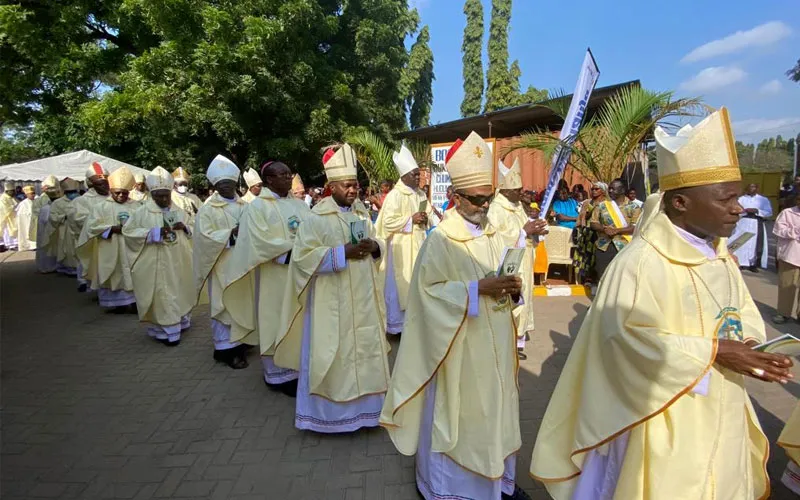 Credit: ACI Africa
Credit: ACI Africa
They noted that integrating the Catholic Social Teaching into instructional curriculums would empower the youth and children in all schools and houses of formation to Priesthood and Consecrated Life.
“The youth must be trained and nurtured to become ambassadors of good ecological practices,” AMECEA Bishops said.
(Story continues below)
They further underlined the need for the Catholic Church in the countries of AMECEA to mobilize community members and to instill in them the values of care for environment.
The Catholic Church leaders expressed their commitment to working with all stakeholders involved in the care for the environment.
They said, “Since climate change effects are affecting every member of the society, we commit to partner with governments, other denominations and faith communities, families, the private sector, Non-Governmental Organizations, community development organizations and all people of good will.”
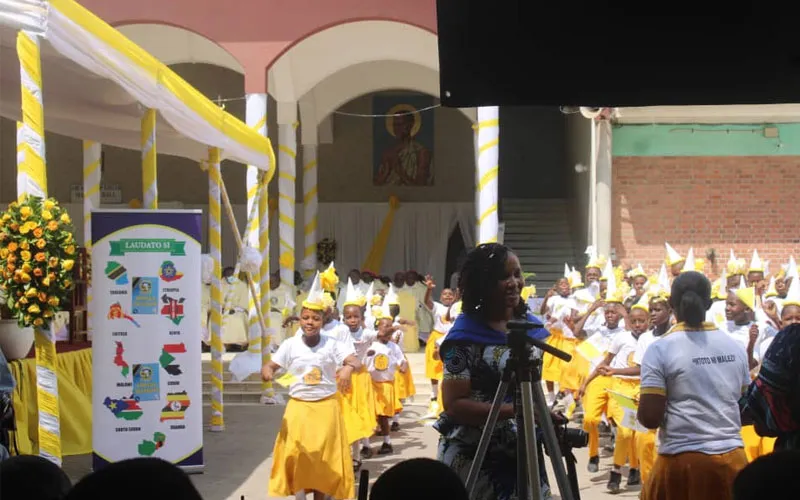 Credit: ACI Africa
Credit: ACI Africa
The Bishops underscored the need for all the eight national Conferences of AMECEA to strengthen their advocacy role towards environmental care policies and laws that they said will curb the negative human practices.
Such laws and policies, however, should be “sensitive to the welfare of their people as guided by the principles of social justice,” they said.
In their collective statement, AMECEA Bishops pledged “to respond to the cry of the earth and the cry of poor in fulfilment of our God given mandate.”
“God willed that man should cultivate and care for the earth,” they said, and added, “In recognition of this greater calling, we urge all the pastoral agents of the Catholic church and the people of good will to be stewards of the environment and natural resources not only for the benefit of the current generation but to the future generations, on whose behalf we must nurture the environment.”
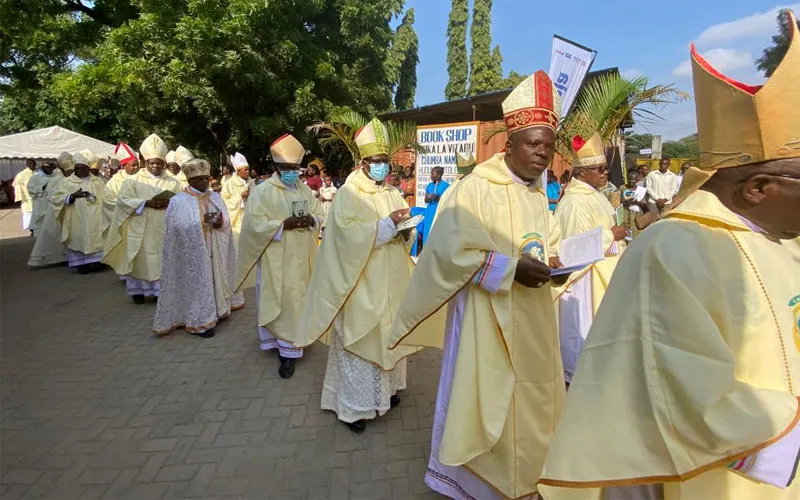 Credit: ACI Africa
Credit: ACI Africa
AMECEA Bishops went on to laud various state and non-state agencies and individuals who they said are already taking affirmative actions to protect the environment such as promoting tree planting and campaigning for cleaning of cities from thin plastic and for effective waste management systems.
They said, “We stress the urgent need for more models in AMECEA, whose exemplary lifestyles will highlight the efforts to respond to the cry of Mother Earth.”
The Catholic Bishops reiterated the message of Luis Antonio Cardinal Tagle, one of the Pro-Prefects of the Dicastery for Evangelization who, earlier in the week, said that “lack of caring for other people co-exists with behaviors and practices that damage creation” and that “when there is lack of integral human development, fraternity suffers”.
The Bishops of AMECEA also expressed their solidarity with countries they said are suffering owing to climate change, saying, “We prayerfully and in a caring spirit stand with you in your struggles.”
They also prayed for AMECEA countries that are experiencing various kinds of conflicts, identifying Ethiopia, Eritrea, Sudan, South Sudan. They also expressed their spiritual solidarity with communities affected by conflict in other parts of Africa and the world.
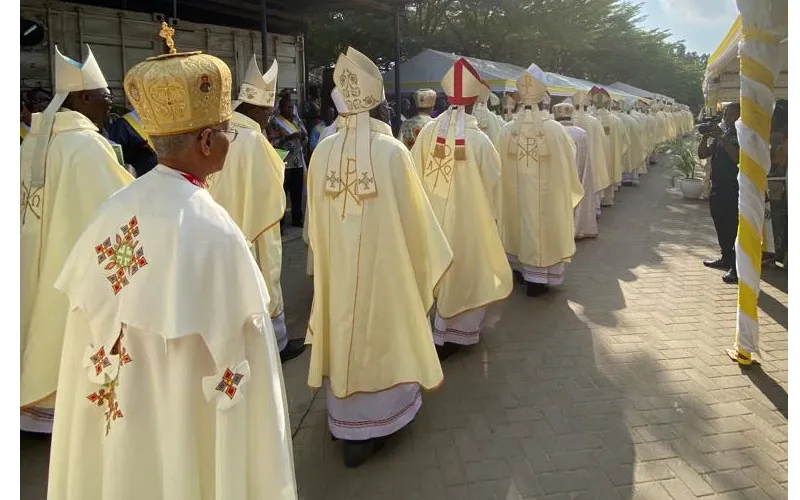 Credit: ACI Africa
Credit: ACI Africa
In their message of solidarity with Kenya, which is nearing national elections, AMECEA Bishops said, “We pray for free, fair, credible and peaceful elections in Kenya as the country goes to the poll on August 9, 2022.”
They expressed their gratitude to the Tanzania Episcopal Conference (TEC) for hosting this Plenary that brought together over 100 Bishops who deliberated on the theme, “Environmental Impact on Integral Human Development”.
AMECEA Bishops also thanked Tanzania’s President Samia Suluhu Hassan and her government “for the culture of hospitality and for the spirit of Church – State collaboration.”
The 20th Plenary Assembly re-elected Bishop Kasonde of Zambia’s Solwezi Diocese as the Chairman of AMECEA Executive Board, with members from all the eight Conferences of the nine-member association.
Two documents were also launched during the July 17 event, one on Laudato Si’ implementation guidelines in the countries of AMECEA, and another, “a Catholic guide on provision of Chaplaincy and Apostolate services” in the AMECEA region.
Agnes Aineah is a Kenyan journalist with a background in digital and newspaper reporting. She holds a Master of Arts in Digital Journalism from the Aga Khan University, Graduate School of Media and Communications and a Bachelor's Degree in Linguistics, Media and Communications from Kenya's Moi University. Agnes currently serves as a journalist for ACI Africa.
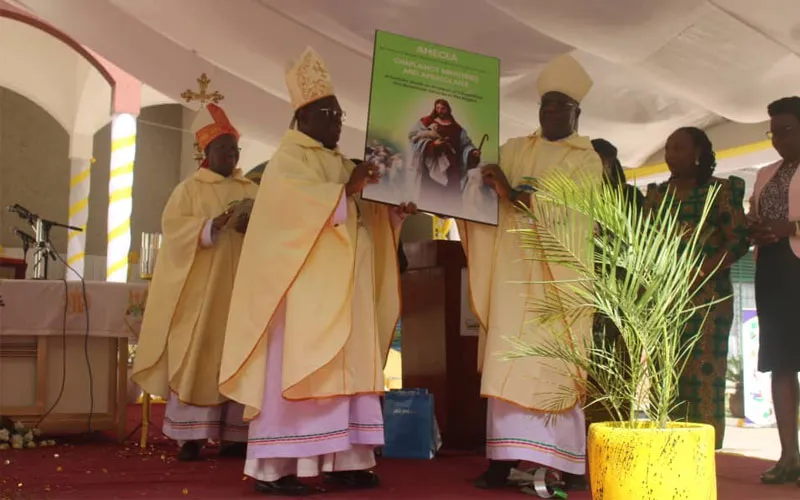 Credit: ACI Africa
Credit: ACI Africa


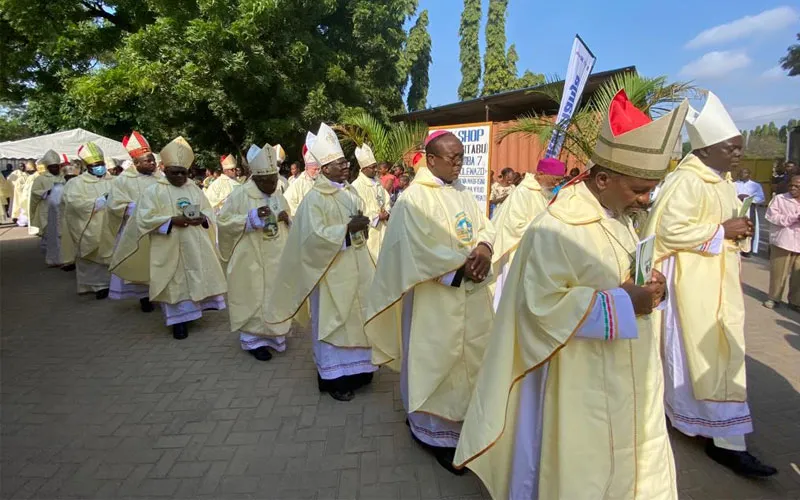
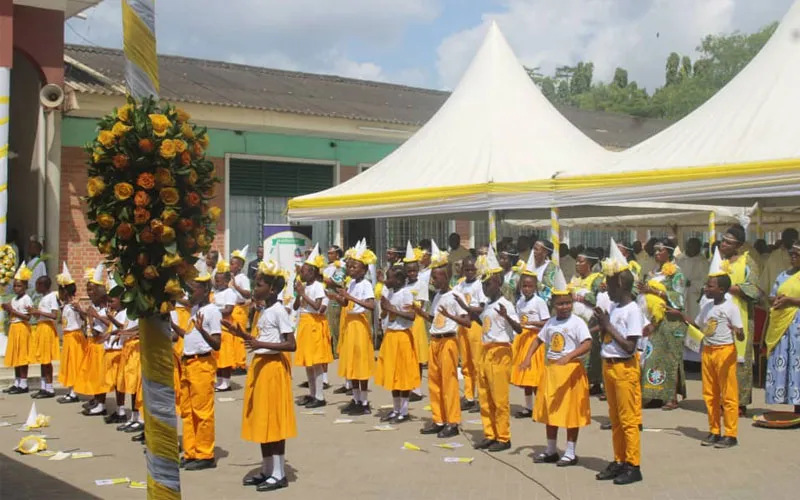 Credit: ACI Africa
Credit: ACI Africa
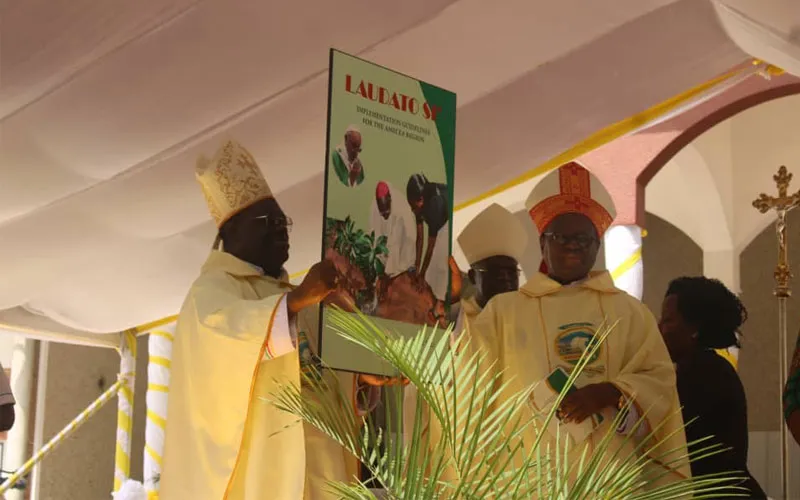 Credit: ACI Africa
Credit: ACI Africa Credit: ACI Africa
Credit: ACI Africa Credit: ACI Africa
Credit: ACI Africa Credit: ACI Africa
Credit: ACI Africa Credit: ACI Africa
Credit: ACI Africa


